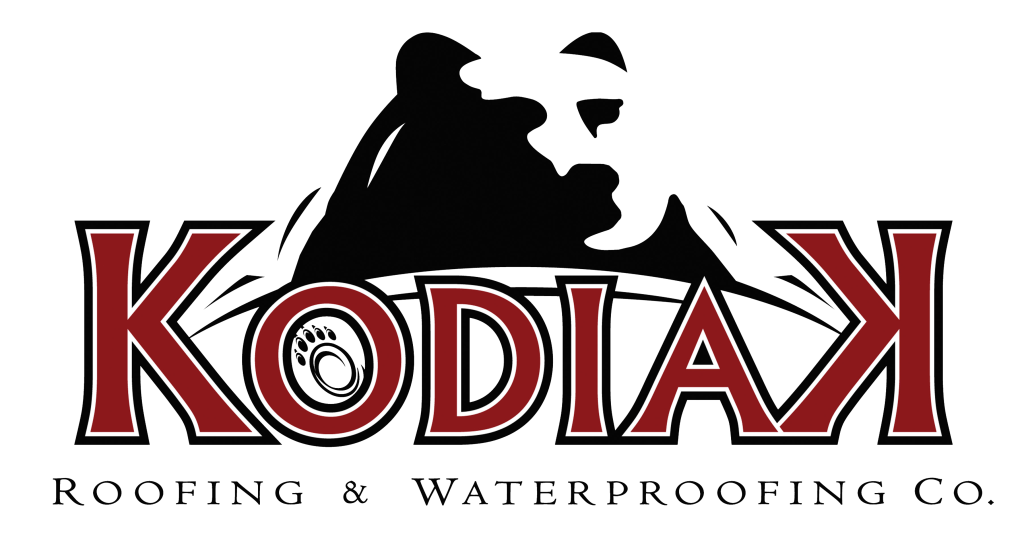Your Comprehensive Guide to Tiles, Metal, Shingles and More!

Your commercial roof is a vital part of your building, protecting your property and assets from the elements. With so many roofing materials on the market, making the right call on material to protect and enhance your investment can be tough. This beginner-friendly guide will help you explore key factors to consider when choosing a commercial roofing material.
Climate:
- Weather extremes: Consider your location’s typical weather patterns. Metal roofs excel in areas with heavy rain or snow due to their durability. In contrast, single-ply membranes like TPO or EPDM might be better for hot climates due to their reflective properties.
Budget:
- Long-term investment: While upfront costs are important, remember your roof is a long-term investment. Factor in material lifespan, maintenance requirements, and potential energy savings. Metal roofs, though pricier initially, can last for decades with minimal maintenance.
Building Use and Aesthetics:
- Functionality: Flat roofs are typical for commercial buildings, as they offer more usable space. However, they require materials like modified bitumen that can handle standing water. If foot traffic or equipment is expected on the roof, choose a sturdy material like metal.
- Curb appeal: Don’t underestimate the visual impact of your roof. Metal roofs come in various styles and can add a modern touch, while some low-slope options offer a clean, finished look.
What’s your angle?
With a wide range of options for roofing material, it’s important to first realize which materials are available to you. Roofs are classified as Low Slope Roofs – or Flat Roofs – and Steep Slope Roofs.
- Low Slope Roofs: Common among warehouses, shopping centers, offices, hospitals etc. With this roofing system, EPDM, PVC, and TPO type material are the most common.
- Steep Slope Roofs: These systems are typically seen on single and multifamily homes, with some exceptions. With this roofing system, popular roof materials include metal, shingles, slate or tile.
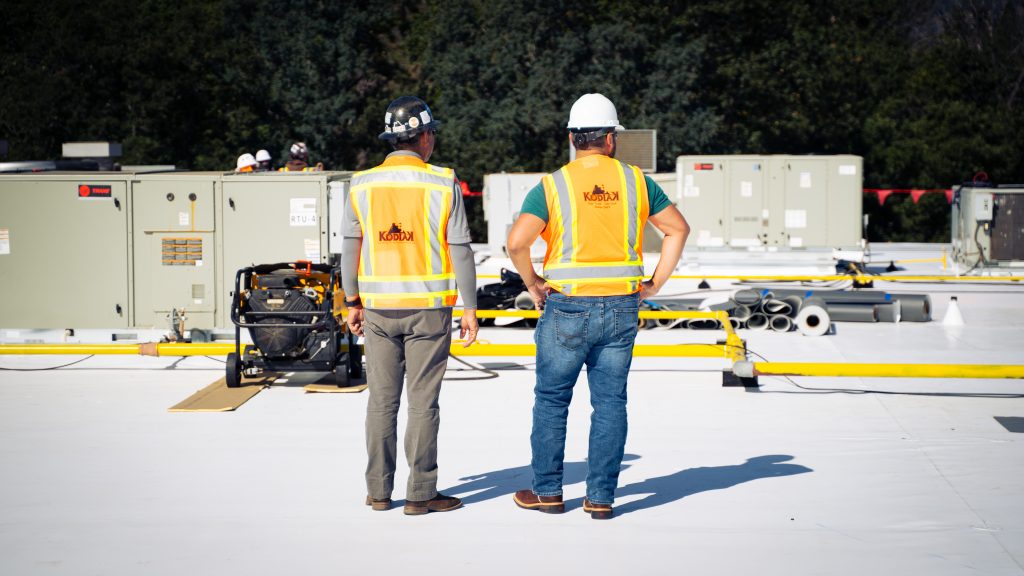
Metal roofs have become increasingly popular for both residential and commercial buildings. But with any roofing material, there are advantages and disadvantages to consider.
Pros:
- Lifetime Investment: Metal roofs boast an impressive lifespan, lasting 40–70 years, resulting in significant long-term savings.
- Weather Warrior: Metal roofs handle harsh weather conditions like heavy rain, snow, and strong winds with ease. They’re also resistant to fire, rot, and insect infestation.
- Energy Efficiency: Metal roofs reflect sunlight, reducing heat gain in your building and lowering cooling costs. Add a layer of silicone or acrylic coating to further reduce energy consumption and keep buildings cool.
Cons:
- Upfront Cost’s: Metal roofs are considerably more expensive than traditional options like asphalt shingles. While the lifespan is longer, it requires more up-front investment.
- Noise Concerns: Rain and hail can create a noticeable clatter on a metal roof, especially without proper insulation.
- Dent and Scratch Prone: Metal can dent or scratch, especially with hail or flying debris. While some materials are more resistant, repairs might be needed.
Metal roofs offer undeniable advantages in terms of durability and energy efficiency, and come in a limitless number of styles to match your creative vision.

- Climate: Metal roofs excel in areas with harsh weather conditions.
- Style: Metal roofs come in various styles and can add a highly sought after aesthetic.
- Skilled Workmanship: Metal roofs are not recommended for DIY installation due to the highly specialized skills required.
Single Ply Roofing systems use TPO, PVC, and EPDM membranes as single ply sheets of rubber that are chemically applied to create a sealed layer of protection to flat commercial roofs. This low-cost material can provide economical protection, but is it the right choice for you?
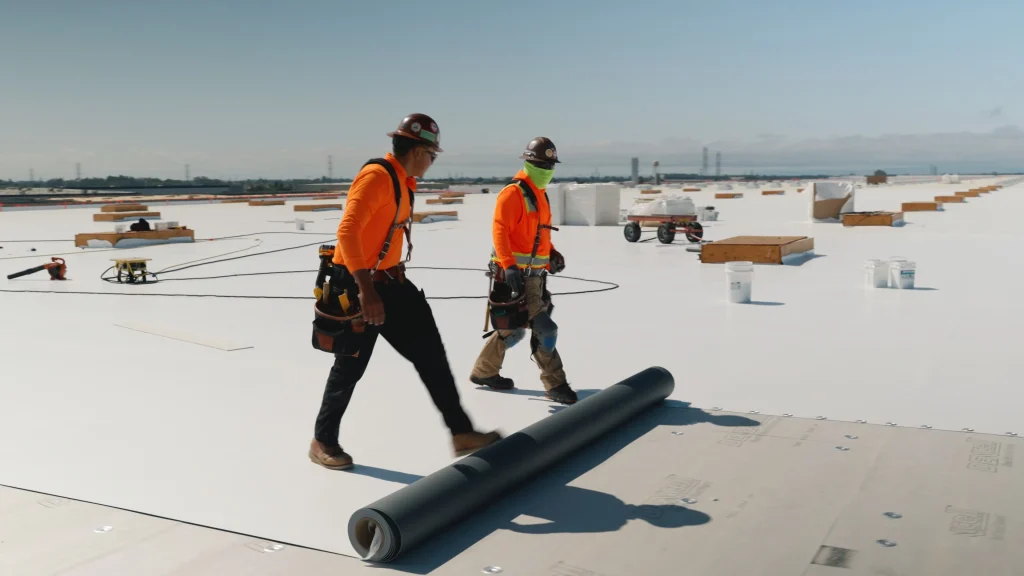
TPO (Thermoplastic Polyolefin)
Pros:
- Cost-effective: TPO is generally the most affordable option among the three.
- Energy-efficient: Its white reflective surface helps lower cooling costs by reflecting sunlight.
- Easy installation: TPO can be attached using adhesives or heat welding, making installation efficient.
- Durable: TPO offers good resistance to UV rays, ozone, and chemicals.
Cons:
- Puncture resistance: TPO may be slightly more susceptible to punctures compared to PVC.
- Lower melting point: TPO has a lower melting point than PVC, so it’s important to avoid heat sources on the roof.
- Limited color options: TPO typically comes in white only.
PVC (Polyvinyl Chloride)
Pros:
- Durability: PVC is known for its exceptional strength and resistance to punctures, tears, and chemicals.
- Wider temperature range: PVC can withstand a wider range of temperatures than TPO or EPDM.
- Fire resistance: PVC comes in fire-resistant formulations.
Cons:
- Cost: PVC is generally the most expensive option of the three.
- Lower energy efficiency: Standard PVC is black and absorbs heat, raising cooling costs. However, white PVC options are available.
- Chemical welding: PVC requires solvent-based welding for seams, which can have environmental drawbacks.
EPDM (Ethylene Propylene Diene Monomer)
Pros:
- Affordability: Cost-effective that is comparable to TPO in price.
- Flexibility: Even at low temperatures, EPDM stays flexible, making it ideal for cold climates.
- Easy repair: Repairs are relatively simple and inexpensive.
Cons:
- Energy efficiency: Standard EPDM is black and absorbs heat, similar to standard PVC. White EPDM options are available for better reflectivity.
- Lifespan: EPDM may not last quite as long as TPO or PVC.
- Seaming process: EPDM seams require special adhesives or tapes, which require care during installation.
The best roofing material for your commercial building depends on your specific needs and priorities.
- Budget: TPO and EPDM are generally more budget-friendly than PVC.
- Climate: If you’re in a hot climate, a white roof like TPO or white EPDM will be more energy-efficient. Cold climates may benefit from the flexibility of EPDM.
- Chemical exposure: If your roof will be exposed to chemicals, PVC’s high chemical resistance may be a priority.
Asphalt shingles, a familiar sight in your neighborhood might seem like an unexpected choice for your commercial building. Believe it or not, they offer a surprising range of benefits for the right business.
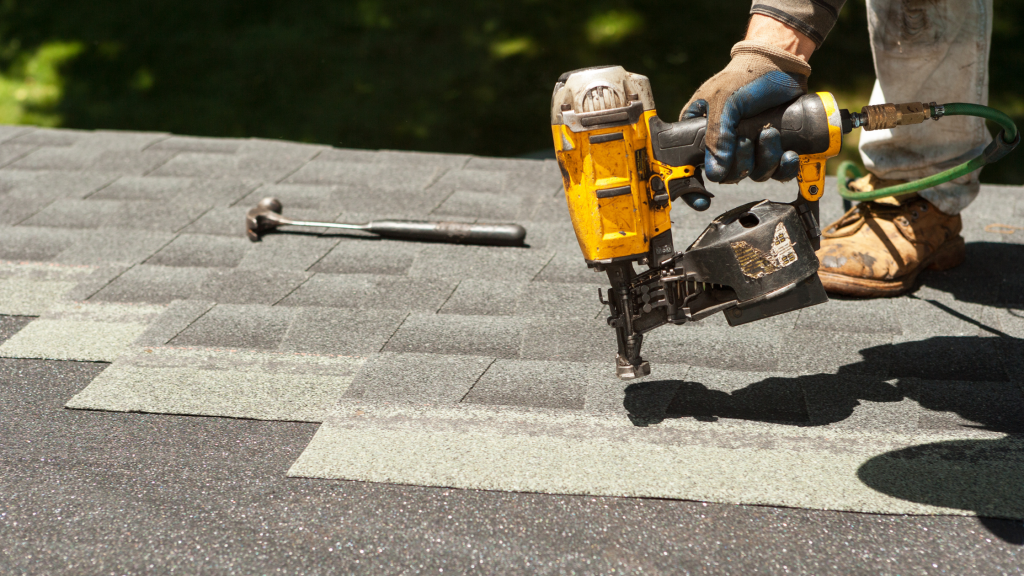
Pros:
- Cost-Effective Choice: Asphalt shingles are one of the most affordable roofing materials, making them an attractive option for businesses on a tight budget. This affordability extends to repairs, as individual shingles can be replaced without needing a complete roof overhaul.
- Easy Installation and Maintenance: Shingle roofs are relatively simple to install and maintain compared to some other commercial roofing options. This translates to lower installation costs and potentially less disruption during maintenance.
- Wide Range of Styles and Colors: Shingles come in various colors and styles, allowing you to complement your building’s aesthetics and potentially even enhance curb appeal.
- Decent Durability: Modern, high-quality asphalt shingles can last 15–30 years with proper maintenance, offering a respectable lifespan for many businesses.
Cons:
- Limited Lifespan: While decent, shingle roofs don’t hold a candle to the longevity of metal roofs, which can last for decades. This might not be ideal for long-term investments.
- Susceptibility to Weather: Asphalt shingles are more prone to damage from extreme weather events s like hail and strong winds compared to metal or some single-ply membranes.
- Fire Resistance: While asphalt shingles do have some fire resistance, they aren’t the most fire-retardant option. This might be a concern for businesses in high-risk areas.
- Not Ideal for All Roofs: Shingles are best suited for pitched roofs, limiting their application on many commercial buildings that utilize flat roof designs.
Asphalt shingles can be a viable option for commercial buildings with pitched roofs and in areas with moderate weather conditions. You may want to consider other roofing materials if long-term durability, extreme weather resistance, or fire safety are top priorities.
Modified Bitumen Roofs combine asphalt and a chemical polymer to form a flexible, temperature resistant roofing material. This type of roof is commonly applied when durability is needed from heat expansion or cold contraction, making it most suitable for areas with hot summers and cold winters.
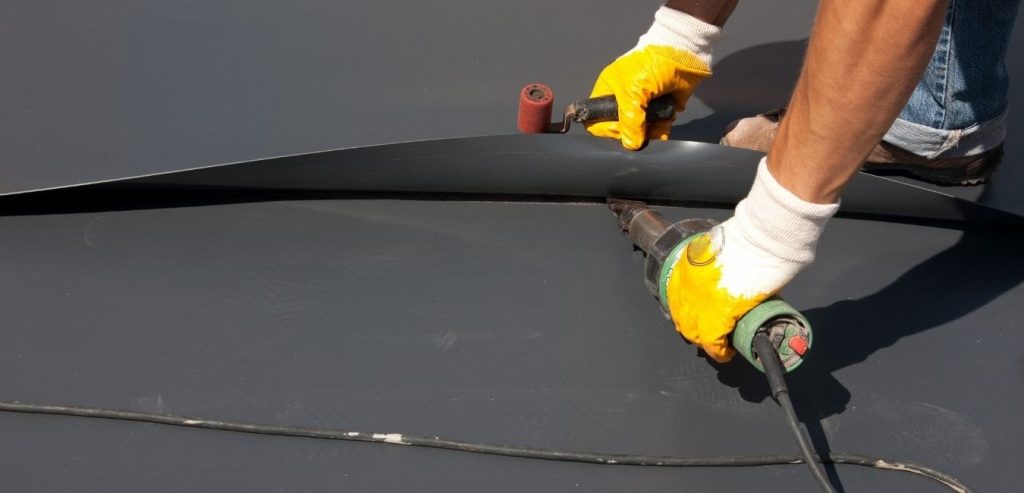
Pros:
- Earth, Wind and Fire: Suitable for all four seasons (not just September), Bitumen roofs are rated against wind, fire and hail damage, making it a prime candidate for long-lasting protection.
- Flexible Spaces: Modified Bitumen Roofing can be applied in several different ways, making it suitable for a wide range of roof types. Common applications include self-adhesive sheets, hot-mopped asphalt or torch/cold applied adhesives
- Quick and Easy: This roofing material is easily applied when done by a professional, meaning the time from installation to total protection is extremely fast and cost-effective.
Cons:
- Shorter Lifespan: Compared to metal roofs, modified bitumen will have a shorter lifespan, needing an update approximately every 10 years. The lower cost will help with repairs, but will need to be factored in.
- What’s That Smell: Because of the unique compounds and application of the material, there may be an unpleasant odor when installing, meaning you may want to relocate while the work is completed.
- Summer Heat: Black coating, if not properly insulated, can trap heat in the roof and throughout the building. Selecting a heat reflecting option would be a good choice in hot climates.
Modified Bitumen Roofs offer durability, flexibility, and cost-effective options for roof spaces that require more protection against extreme weather. It can also be a suitable option for roofing with tight spaces and unique layouts.
Where Quality and Experience Go Hand-in-Hand
Choosing the right commercial roofing material requires thoughtful evaluation by trained roofing technicians. Our team of experts at Kodiak can assess your specific needs and recommend the best options for your building. We offer the highest quality roofing materials available, and are committed to providing exceptional service throughout the entire process.
